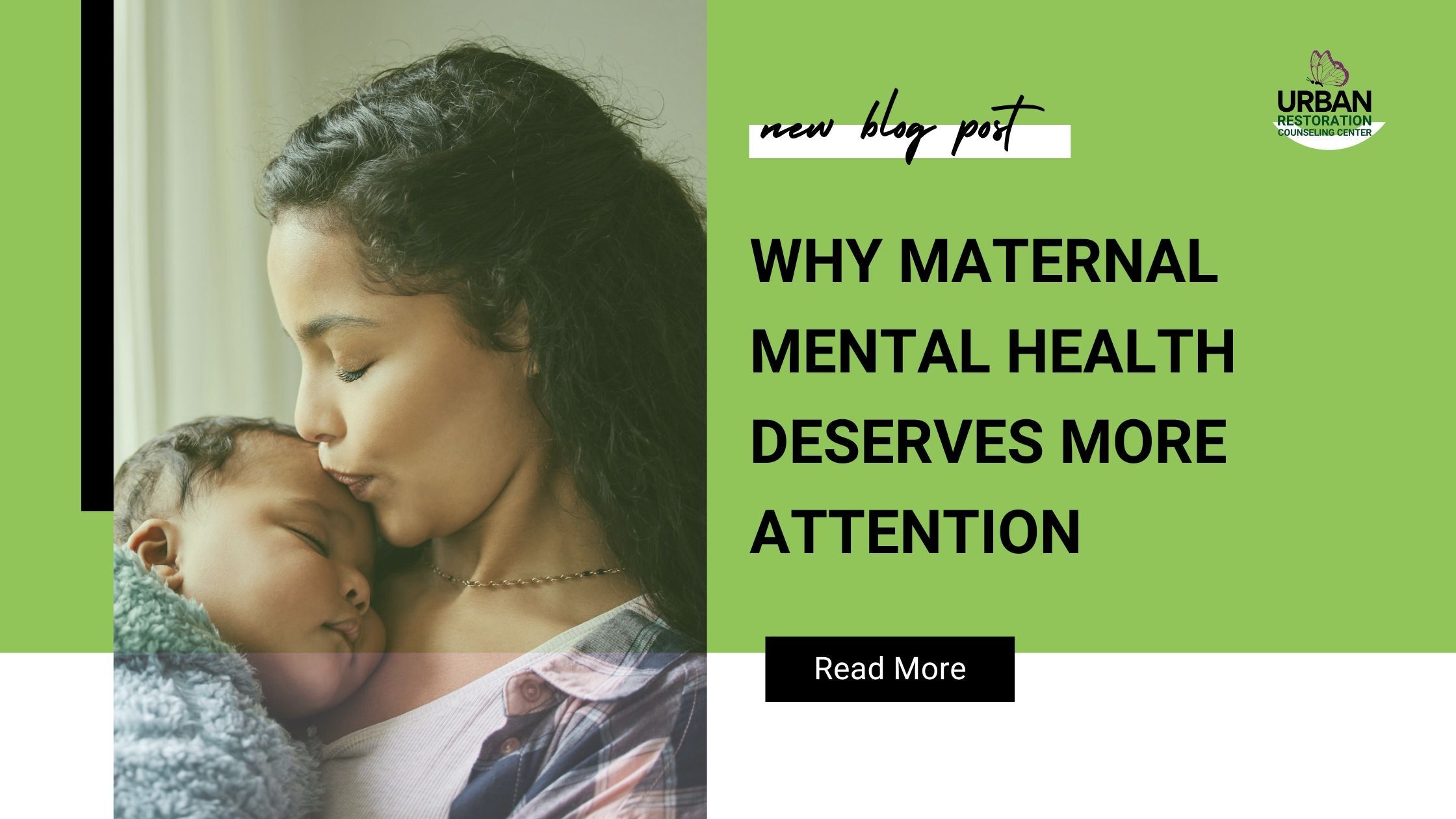
Understanding Maternal Mental Health
During pregnancy, the body undergoes rapid hormonal and physical changes. These changes can contribute to mood fluctuations, stress, and emotional sensitivity. Sleep becomes more difficult to achieve, and discomfort can intensify. Some parents may experience pregnancy-related anxiety, which includes fears about labor, delivery, or the baby’s health. Unaddressed anxiety can create lasting emotional patterns that persist into the postpartum period.
After childbirth, responsibilities multiply. Caring for a newborn requires constant attention and energy. Hormonal shifts continue to affect mood, and sleep deprivation can heighten stress. For some parents, postpartum depression or anxiety develops, which can affect bonding, confidence, and daily functioning. In extreme cases, untreated mental health conditions can lead to thoughts of self-harm or harm toward the baby. These outcomes underscore the importance of awareness, early intervention, and access to care.
Mental health challenges during this period are common. Research indicates that up to one in five parents experience postpartum depression or anxiety. Despite these numbers, stigma, lack of education, and limited access to care prevent many from seeking help. Addressing maternal mental health requires understanding, empathy, and accessible support systems.
Why Maternal Mental Health is Often Overlooked
Social expectations play a major role in how maternal mental health is perceived. Many parents feel pressure to appear happy, grateful, or “naturally capable.” Society often portrays parenthood as effortless and always fulfilling. When parents struggle, they may feel shame or guilt for not meeting these expectations.
Healthcare systems tend to focus more on physical outcomes than emotional well-being. Prenatal visits often include monitoring blood pressure, weight, and fetal growth. Mental health screenings are inconsistent, and many parents leave appointments without guidance on managing stress, anxiety, or depression. Without intervention, early signs of mental health challenges can be missed.
Cultural factors also influence how mental health is addressed. In some communities, discussing emotional struggles is considered taboo. Parents may hide symptoms or avoid therapy for fear of judgment. Limited knowledge about resources further restricts access to care. These barriers contribute to the underdiagnosis and undertreatment of maternal mental health conditions.

The Consequences of Ignoring Maternal Mental Health

● Effects on Infants: Babies need responsive caregiving to thrive. When a parent struggles with anxiety, depression, or stress, bonding and attachment may weaken. Emotional regulation and cognitive development can also be affected. Early support helps protect these critical developmental needs.
● Strained Family Relationships: Untreated mental health issues can create tension in partnerships, sibling relationships, or extended family interactions. Emotional withdrawal, irritability, and communication challenges may lead to conflicts or isolation. Addressing mental health fosters stronger, more supportive family connections.
● Long-Term Consequences: Parents without support may experience ongoing mental health struggles, challenges returning to work, or social withdrawal. Children may absorb stress, potentially affecting their own emotional well-being. Prioritizing maternal mental health benefits both individuals and the larger community.
How Therapy Supports Maternal Mental Health
Individual Therapy for Emotional Support
Individual therapy gives parents a private space to explore feelings about pregnancy, birth, or life after childbirth. Sessions focus on understanding emotional reactions, identifying stressors, and developing practical strategies for coping. Techniques may include mindfulness, guided reflection, or grounding exercises to manage anxiety and mood shifts.
Parents learn to notice patterns in thoughts and behaviors, giving them more control over responses. Over time, this self-awareness helps reduce emotional overwhelm and promotes resilience. Individual therapy encourages personal growth while supporting the parent’s overall mental health, creating a stable foundation for both themselves and their baby.
Couples Therapy for Stronger Partnerships
Couples therapy helps partners navigate the emotional and relational shifts that come with parenthood. Sessions focus on improving communication, sharing responsibilities, and managing conflicts constructively. Partners learn to recognize each other’s emotional needs and respond with empathy. Therapy provides tools for handling disagreements, balancing parenting roles, and maintaining connection during stressful periods.
Strengthening the partnership creates a more supportive environment for both the parent and child. Over time, couples develop strategies that promote understanding, reduce tension, and foster teamwork. These skills make navigating the demands of parenthood more manageable and mutually rewarding.
Family Therapy for Healthy Relationships
Family therapy addresses the broader dynamics within the household. It helps parents and children express feelings, set boundaries, and build trust. Therapy creates a structured space where each family member can be heard and understood. By improving communication patterns, conflicts can be reduced, and stronger connections formed.
Parents learn strategies to manage stress while modeling healthy coping skills for children. Family therapy promotes cooperation, emotional support, and a sense of security within the home. This approach not only supports the parents’ mental health but also nurtures a stable and positive environment for the entire family.
Group Therapy for Peer Support
Group therapy connects parents with others experiencing similar challenges. Sharing experiences in a supportive setting reduces feelings of isolation and normalizes emotions. Groups may focus on postpartum depression, anxiety, or parenting stress. Members provide encouragement, feedback, and practical advice, creating a sense of community. Parents learn coping techniques from peers while gaining validation and reassurance.
Group sessions also build social networks, helping parents feel connected beyond therapy. The shared experience fosters understanding, empathy, and hope. Participating in group therapy allows parents to learn from others, practice skills, and strengthen confidence in managing daily parenting challenges.
Developing Coping Skills and Resilience
Therapy equips parents with tools to manage stress and navigate emotional changes effectively. Techniques include mindfulness, relaxation exercises, journaling, and reflection practices. These methods help parents identify triggers, regulate emotions, and respond intentionally rather than react impulsively. Therapy encourages problem-solving, self-awareness, and adaptive coping strategies that extend beyond sessions.
As parents practice these skills, confidence grows, and stress becomes more manageable. Resilience develops gradually, enabling parents to handle challenges, maintain emotional balance, and strengthen connections with family members. These skills provide lasting benefits, promoting long-term well-being for both parent and child.
Specialized Maternal Mental Health Programs
Some therapy centers provide programs specifically designed for parents during pregnancy and postpartum. These programs combine mental health support with education about parenting and child development. Participants gain knowledge, skills, and tools to care for themselves and their children simultaneously.
Programs may include weekly therapy sessions, case management, and life skills training. Topics often cover stress management, emotional regulation, coping with trauma, and building supportive networks. In these structured settings, parents gain confidence in their ability to navigate challenges while receiving professional guidance.
Specialized programs also consider cultural, social, and economic factors that influence mental health. For parents from marginalized communities, access to culturally competent care is vital. Therapy that respects cultural identity fosters trust, reduces stigma, and increases engagement. Programs like these demonstrate that mental health care can be tailored to meet diverse needs while maintaining high-quality support.

Reconnecting with the Body After Birth
Mindfulness, gentle movement, and relaxation exercises allow parents to notice sensations without judgment. These practices reduce tension and foster awareness. Feeling grounded in the body supports emotional regulation and restores a sense of internal safety. Over time, parents learn to trust their bodies again, which strengthens overall well-being and confidence in parenting.
The Importance of Support Networks
Social support is a major factor in maternal mental health. Partners, family members, friends, and community networks provide emotional and practical assistance. Parents who feel supported report lower stress levels, improved mood, and increased confidence in caregiving.
Therapy can help parents build and strengthen these support networks. Parents may learn communication skills, boundary-setting, and ways to seek help. Group programs also provide peer connections that reduce isolation. Access to support systems fosters a sense of stability and security, which is vital for mental health during pregnancy and postpartum.

The Role of Urban Restoration Counseling Center
Programs at the center help parents develop coping skills, process emotions, and strengthen relationships. Clients receive guidance on emotional regulation, trauma processing, and self-awareness. The supportive environment encourages trust, connection, and growth.
Urban Restoration Counseling Center also provides opportunities for partners and families to participate. Therapy strengthens communication, shared responsibilities, and mutual understanding. Parents leave with practical tools to manage everyday challenges and long-term strategies for well-being.
Reach out to Urban Restoration Counseling Center today. Our compassionate therapists offer personalized support to help you navigate pregnancy, postpartum challenges, and parenting stress. Begin your journey toward emotional balance, confidence, and well-being for you and your family.
Previous / Next post